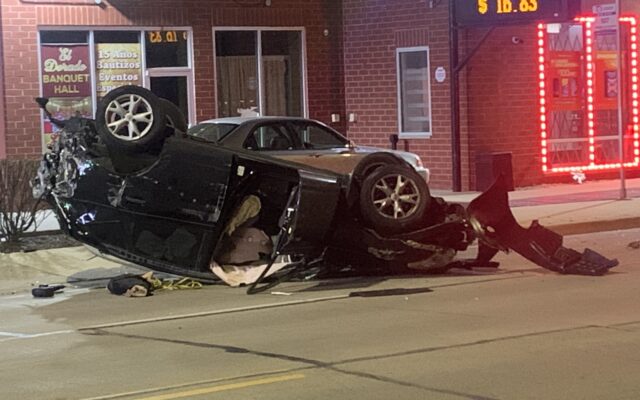Will County Health Department announces first cast of probable Monkeypox

The Will County Health Department announces the first reported case of probable monkeypox infection in a resident of Will County. Confirmatory testing is pending at the U.S. Centers for Disease Control and Prevention (CDC). Monkeypox does not spread easily between people. People who do not have monkeypox symptoms cannot spread the virus to others.
WCHD and Illinois Department of Public Health are working closely with the CDC, the patient, and the patient’s health care providers to identify individuals with whom the patient may have been in contact while infectious. Contact tracing is being conducted to coordinate timely risk assessment and appropriate post- exposure response. To protect patient confidentiality, no further details relating to the patient will be disclosed.
Monkeypox is a rare, but potentially serious, viral illness. Monkeypox virus is part of the same family of viruses as smallpox. Monkeypox symptoms are similar to smallpox symptoms, but milder. Monkeypox is rarely fatal. Monkeypox is not related to chickenpox. Infection typically begins with flu-like symptoms and swelling of the lymph nodes and progresses to a rash on the face and body.
Sometimes, people get a rash first, followed by other symptoms. Others only experience a rash. The rash goes through different stages before healing completely. Most infections last two to four weeks and resolve on their own, but some cases can become severe.
Symptoms of monkeypox can include:
• Fever
• Headache
• Muscle aches and backache
• Swollen lymph nodes
• Chills
• Exhaustion
• A rash that can look like pimples or blisters that appears on the face, inside the mouth, and on other parts of the body, like the hands, feet, chest, genitals, or anus How monkeypox is spread: Monkeypox spreads in different ways. The virus can spread from person-to-person through:
• direct contact with the infectious rash, scabs, or body fluids
• respiratory secretions during prolonged, face-to-face contact, or during intimate physical
contact, such as kissing, cuddling, or sex
• touching items (such as clothing or linens) that previously touched the infectious rash or body
fluids
• pregnant people can spread the virus to their fetus through the placenta
It’s also possible for people to get monkeypox from infected animals, either by being scratched or
bitten by the animal or by preparing or eating meat or using products from an infected animal.
Monkeypox can spread from the time symptoms start until the rash has fully healed and a fresh
layer of skin has formed. The illness typically lasts 2-4 weeks. People who do not have monkeypox
symptoms cannot spread the virus to others. At this time, it is not known if monkeypox can spread
through semen or vaginal fluids.
How to protect yourself:
Take the following steps to prevent getting monkeypox:
• Avoid close, skin to skin contact with the monkeypox rash.
• Do not touch the rash or scabs of person with monkeypox.
• Do not kiss, hug, cuddle or have sex with someone with monkeypox.
• Do not share eating utensils or cups.
• Do not handle or touch the bedding, towels, or clothing of a sick person.
• Wash your hands often with soap and water or use an alcohol-based hand sanitizer, especially
after contact with sick people.
A person who is sick with monkeypox should isolate at home. If they have an active rash or other symptoms, they should be in a separate room or area from other family members and pets when possible.
How to protect others:
If you have symptoms particularly a rash consistent with monkeypox (even if you do not think you were in contact with anyone with monkeypox), or if you have been in contact with someone who has been diagnosed with monkeypox:
• Stay home if you are feeling sick
• Contact a health care provider as soon as possible for an evaluation
• Avoid skin-to-skin, or close contact with others, including sexual contact, until a medical
evaluation has been completed
• Inform sex partners about any symptoms you are experiencing
• Cover any rash with clean, dry, loose-fitting clothing
• Wear a well-fitted mask
• If you are contacted by public health officials, answer their confidential questions to
help protect others who may have been exposed
To learn more about monkeypox click here






